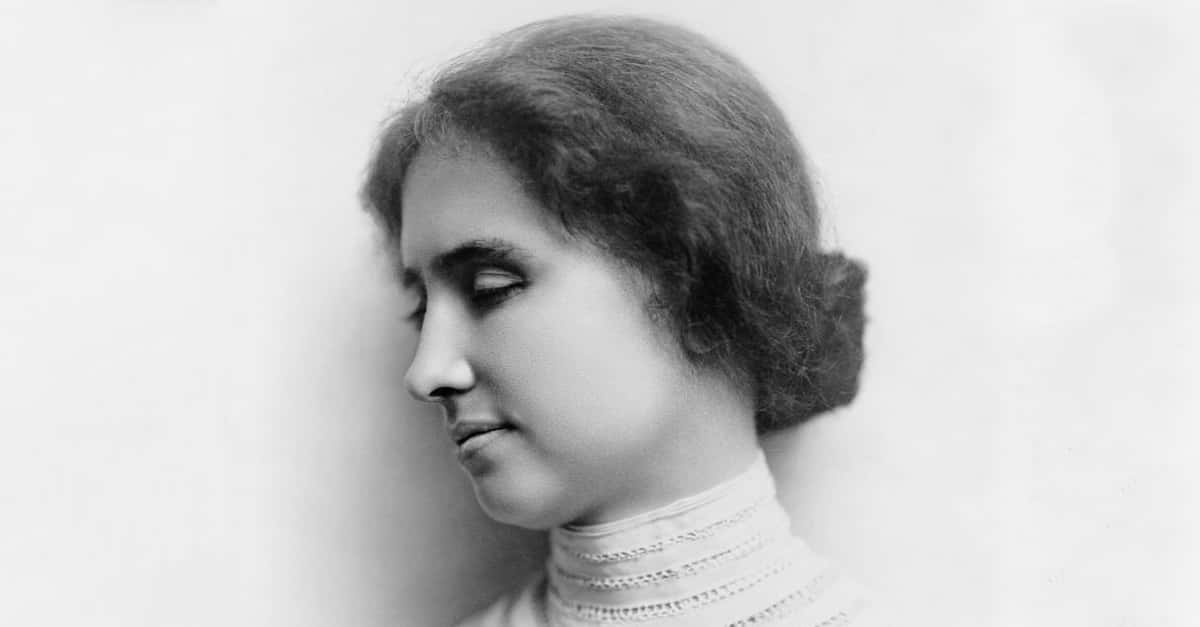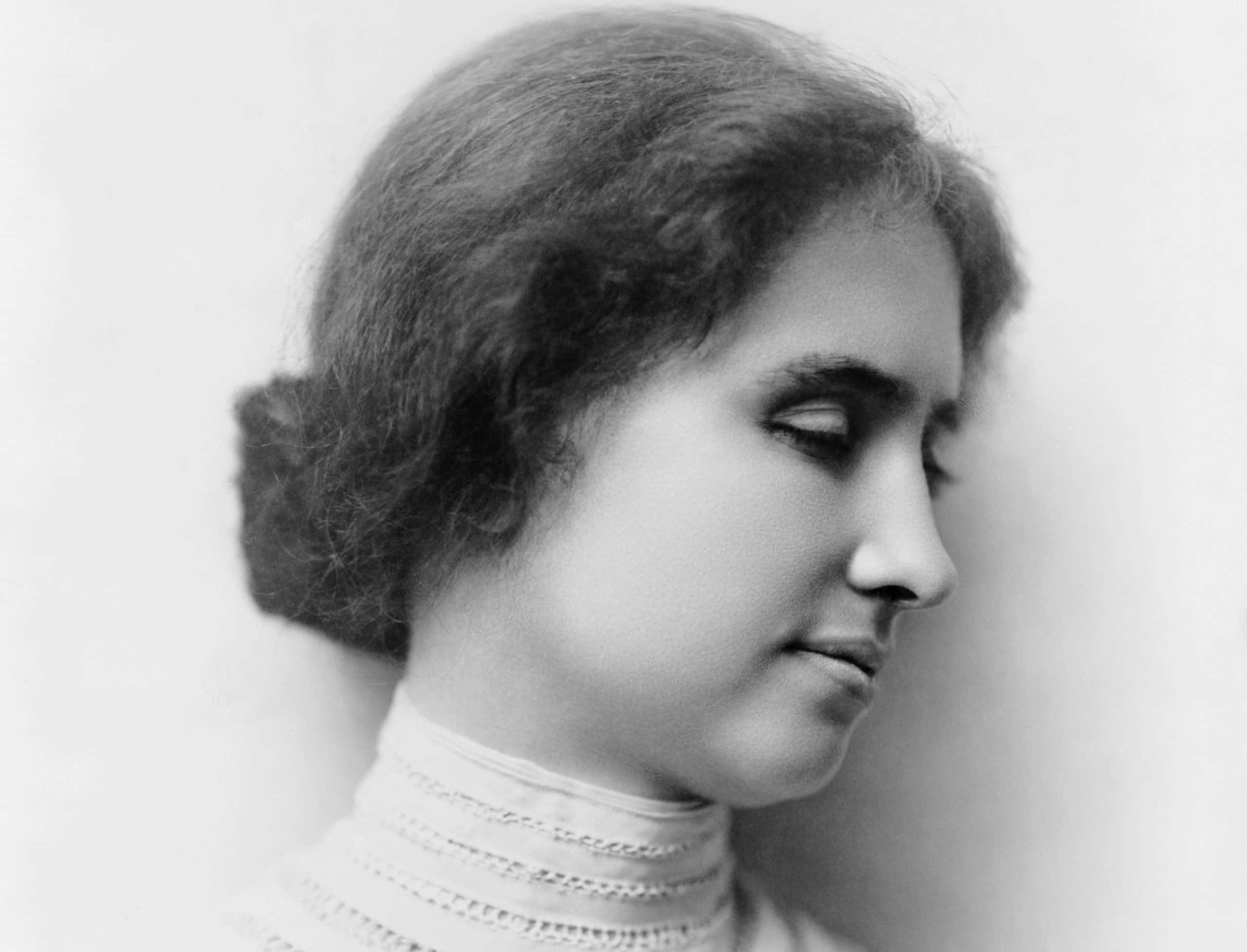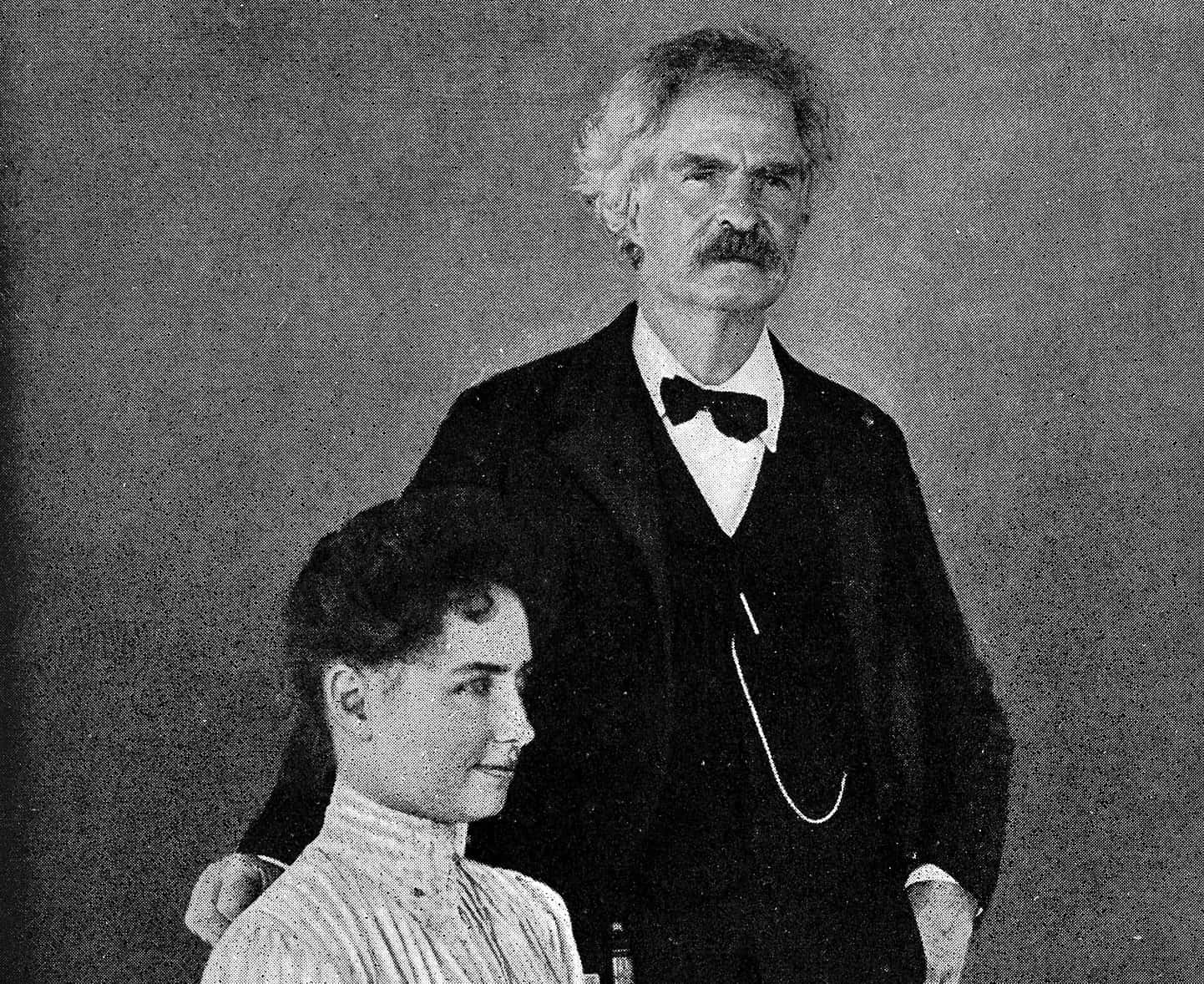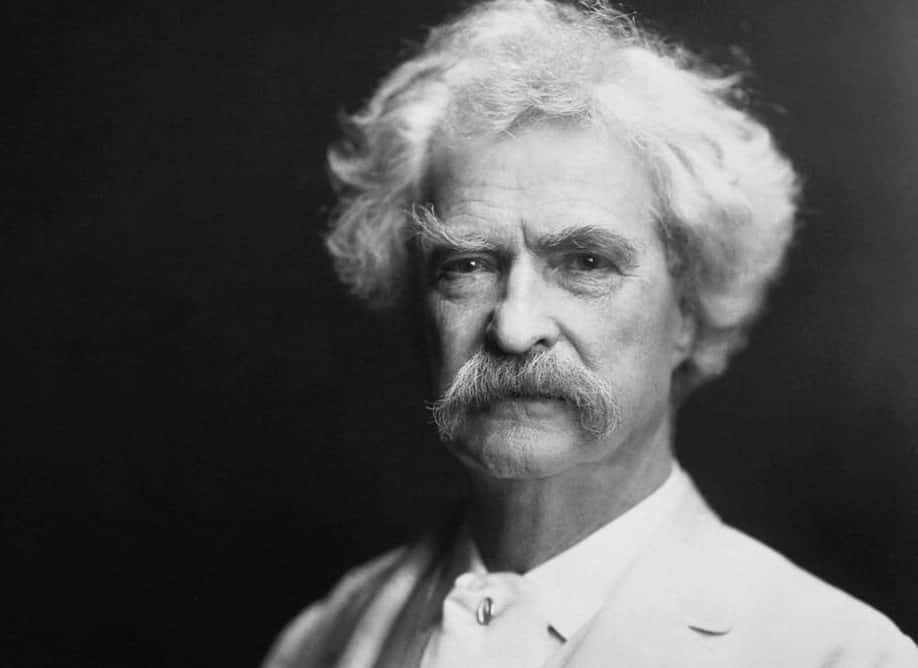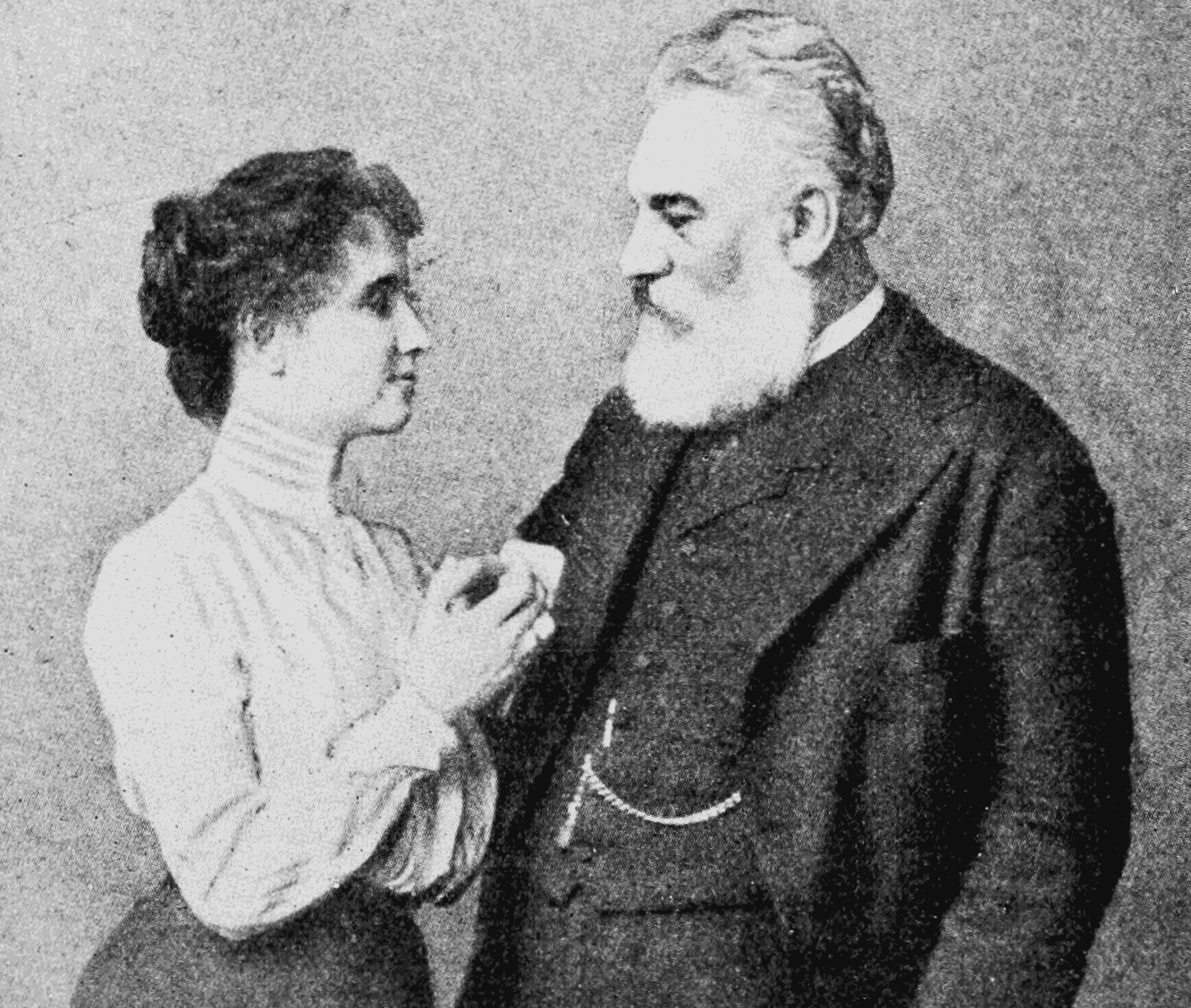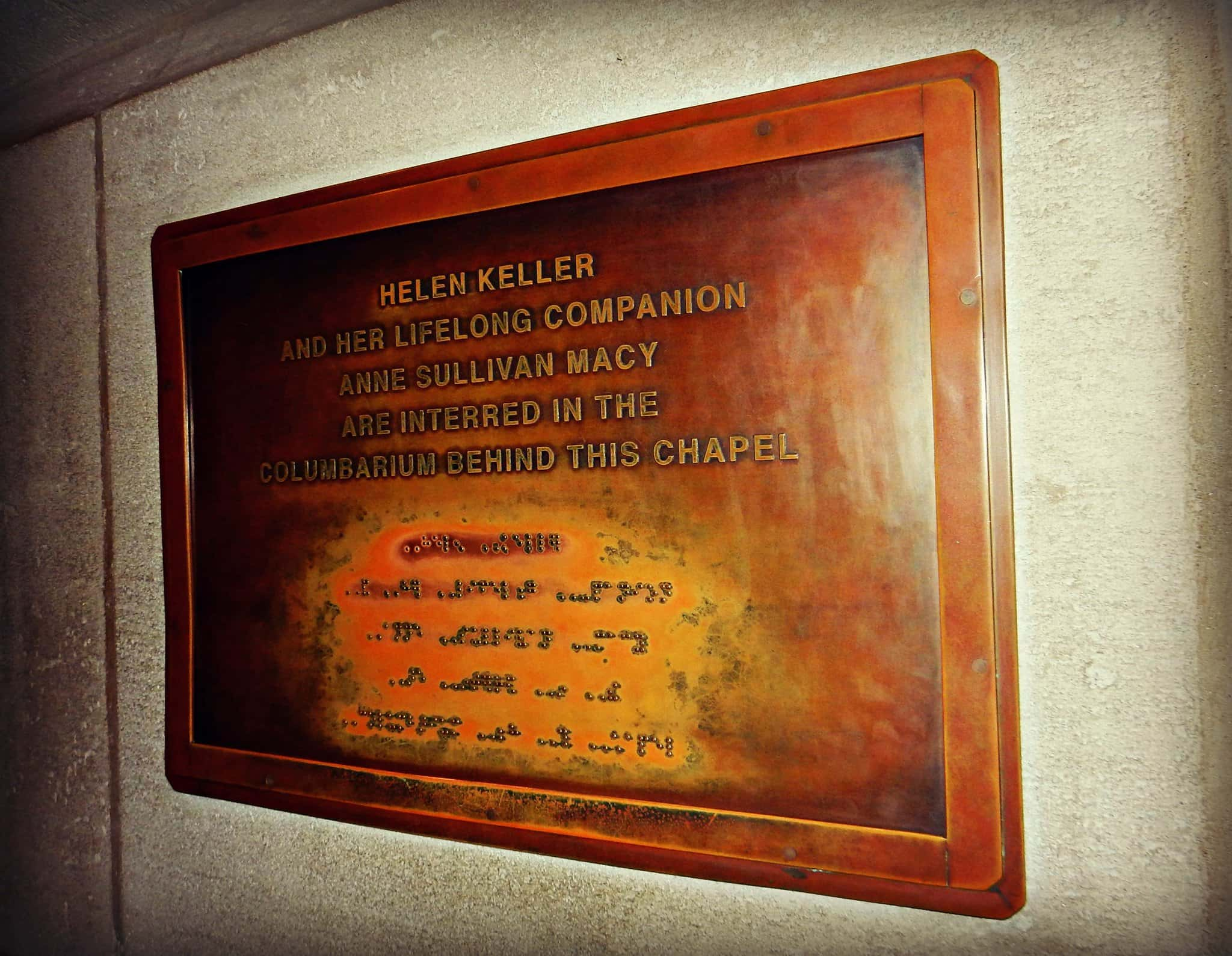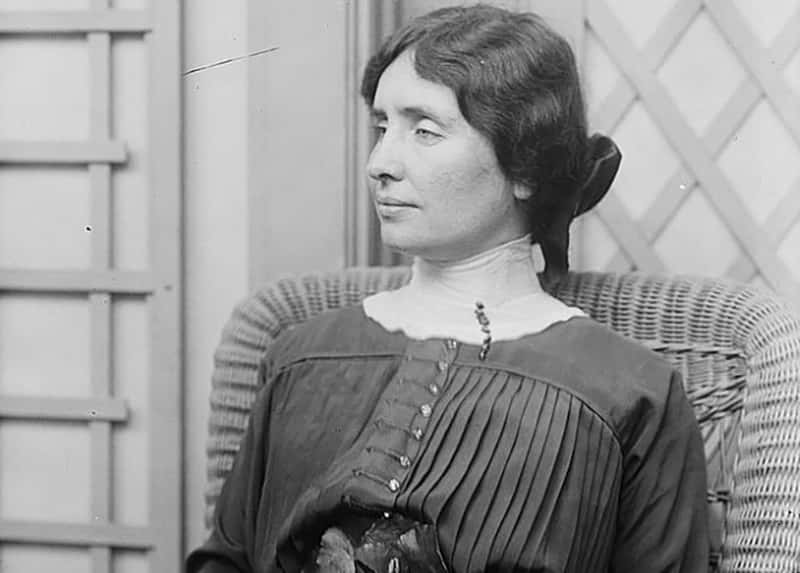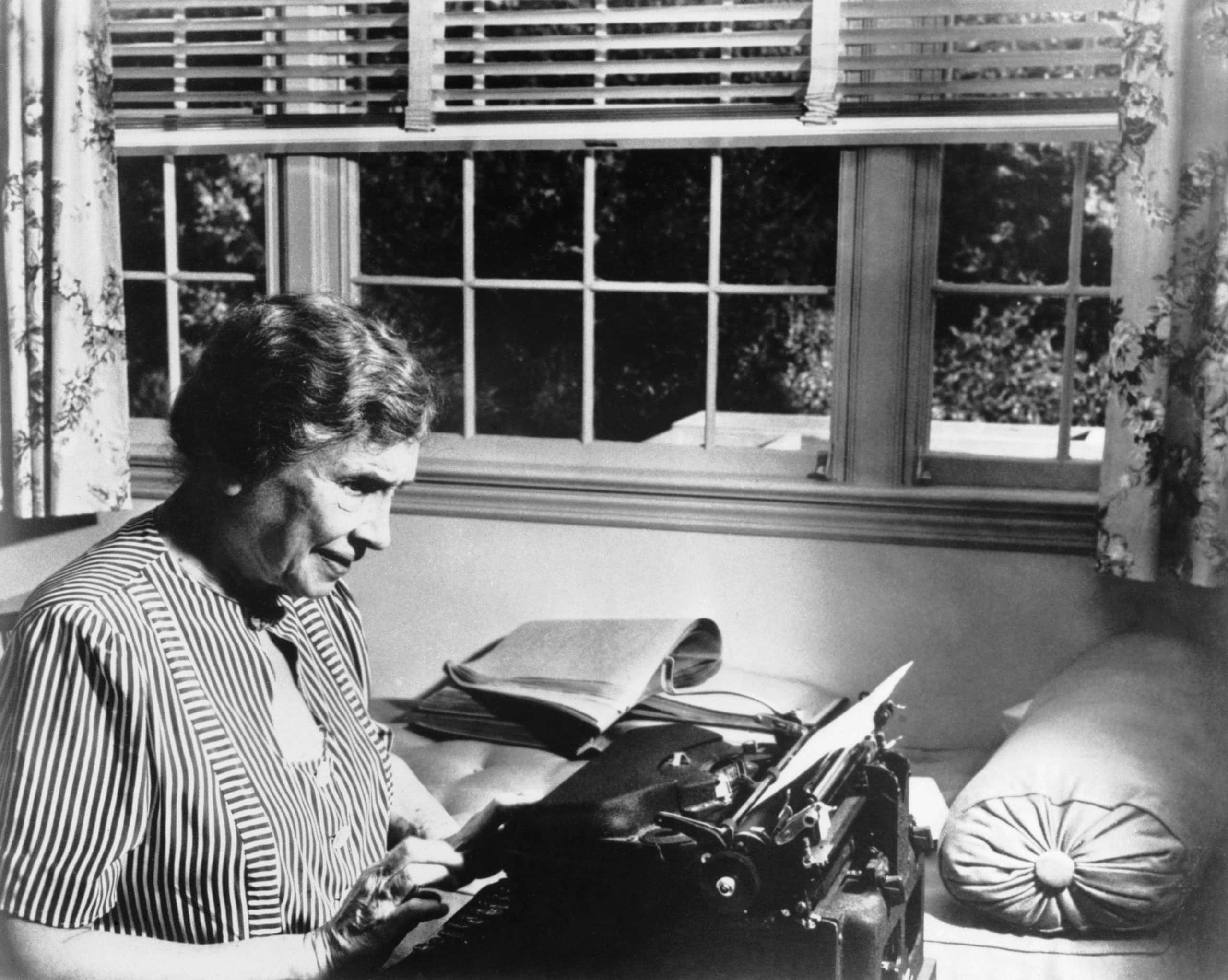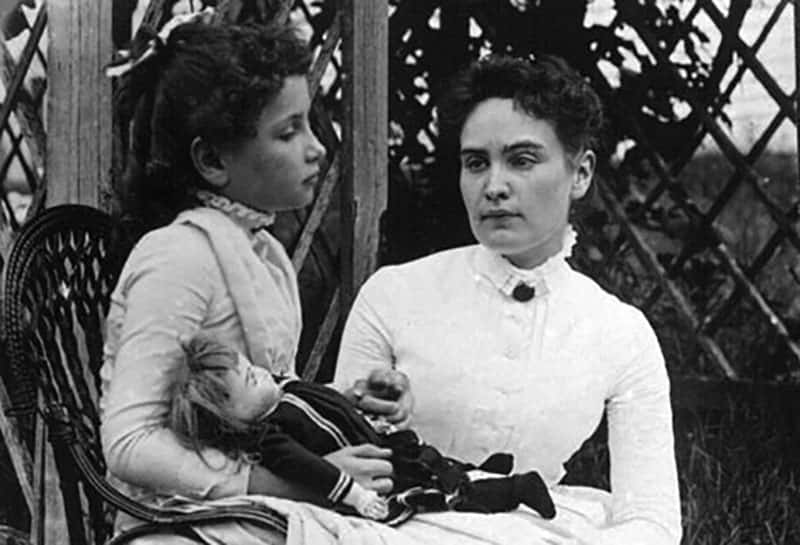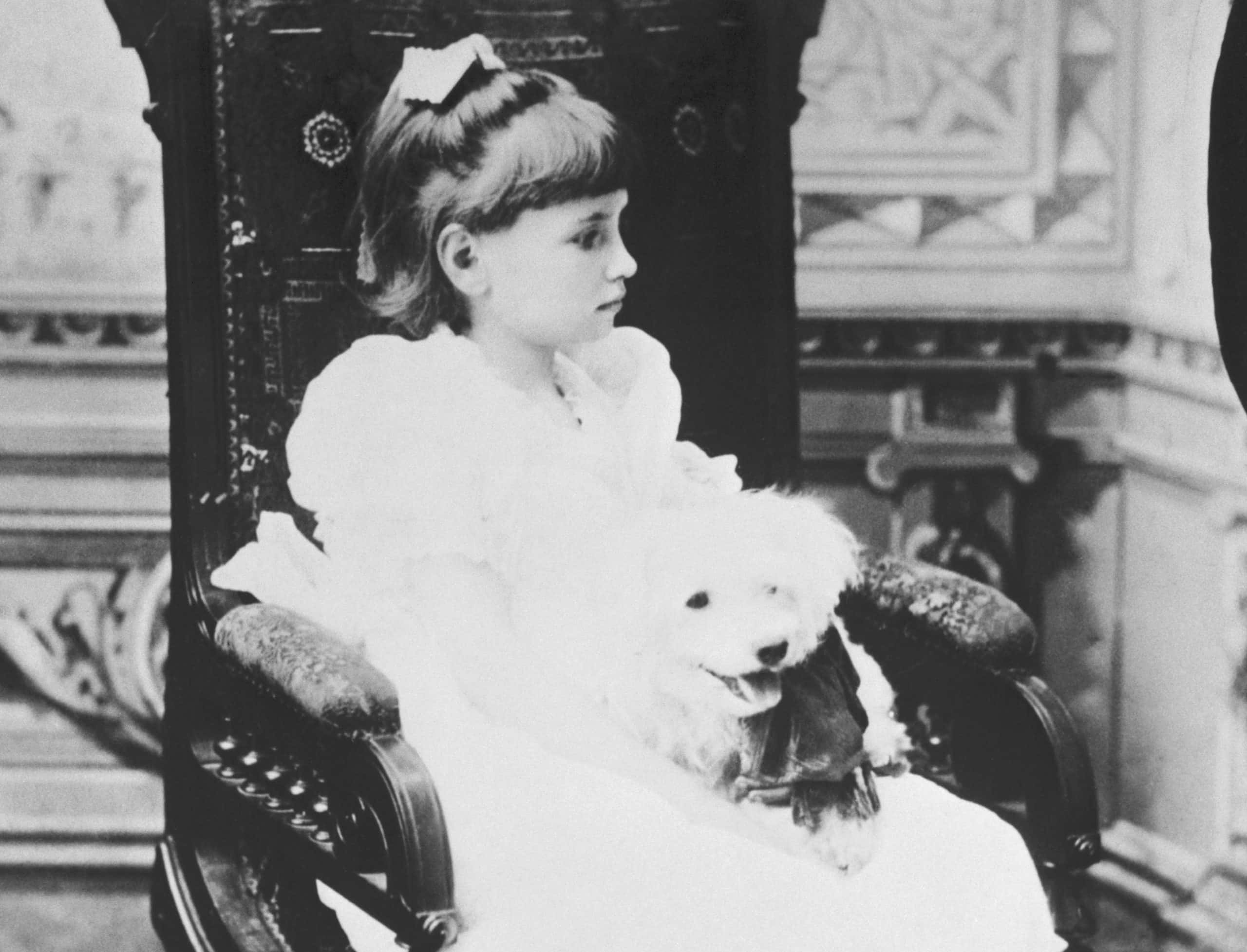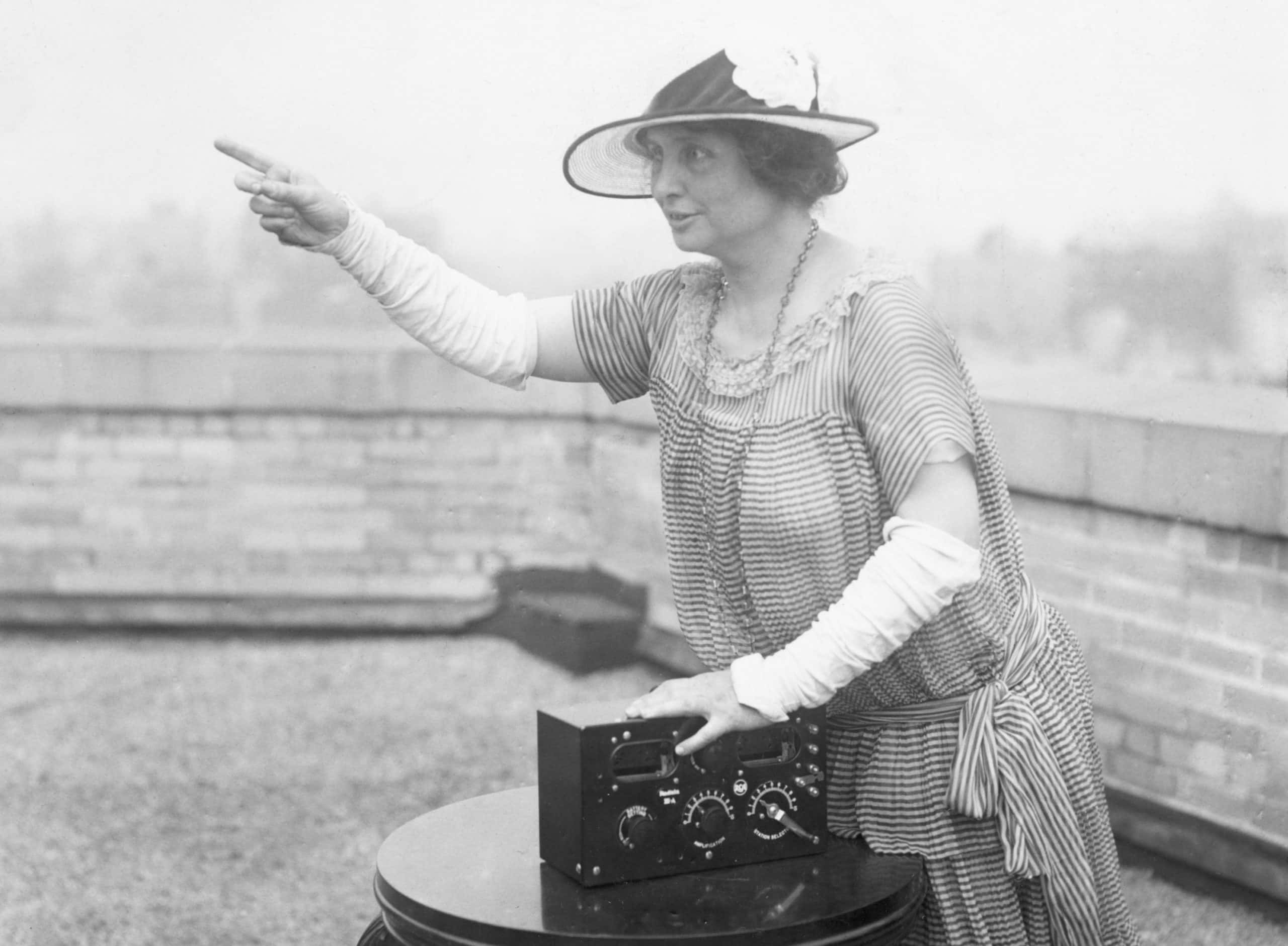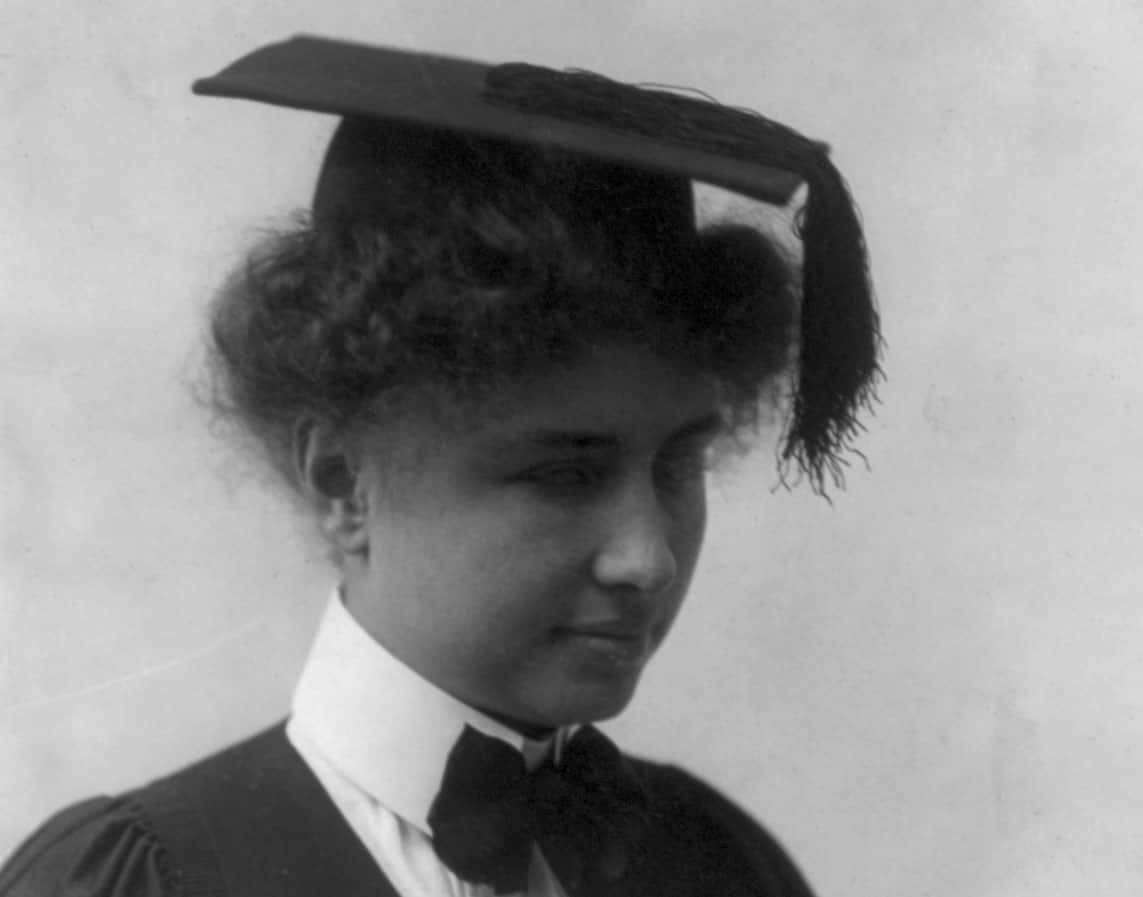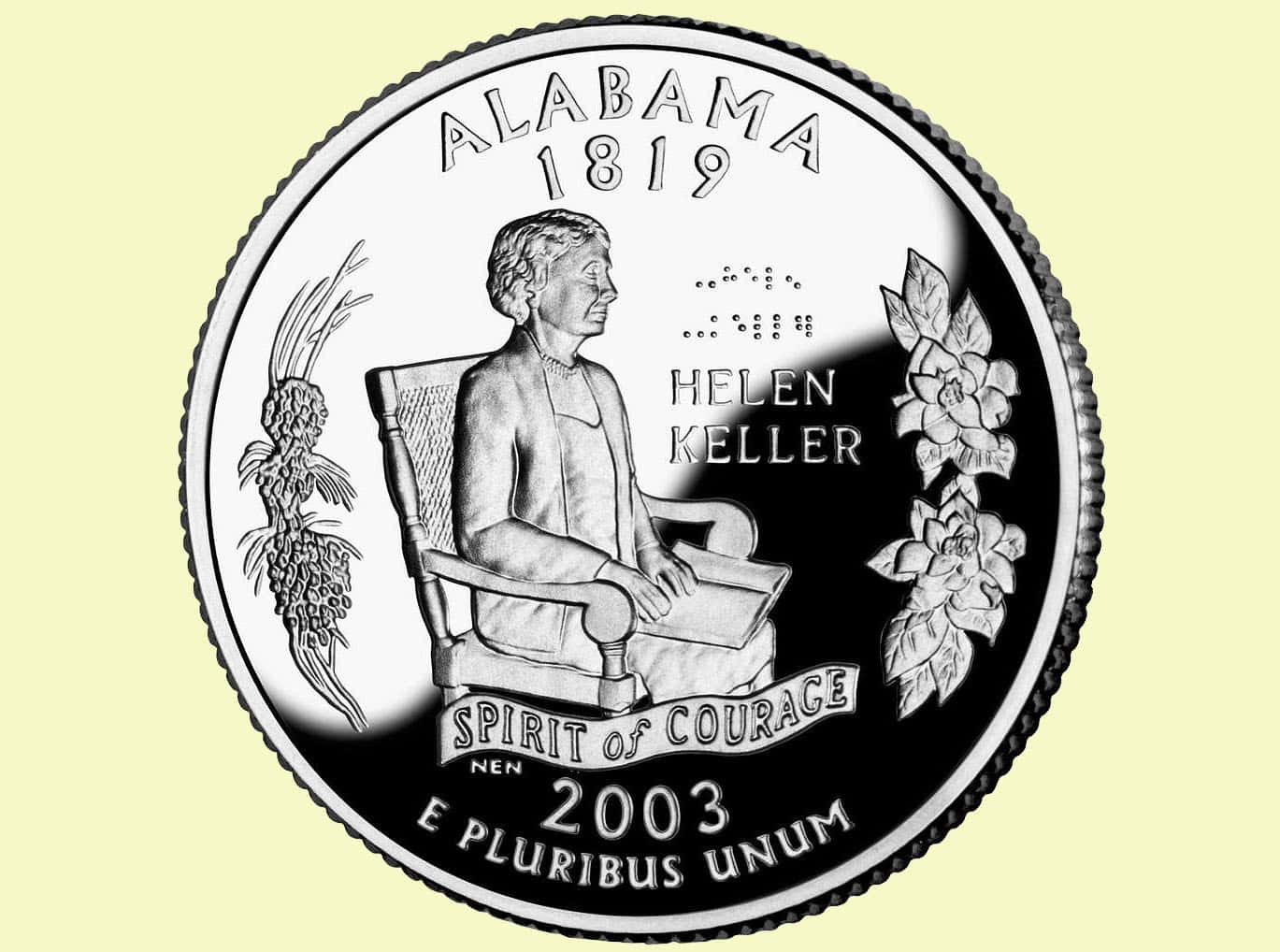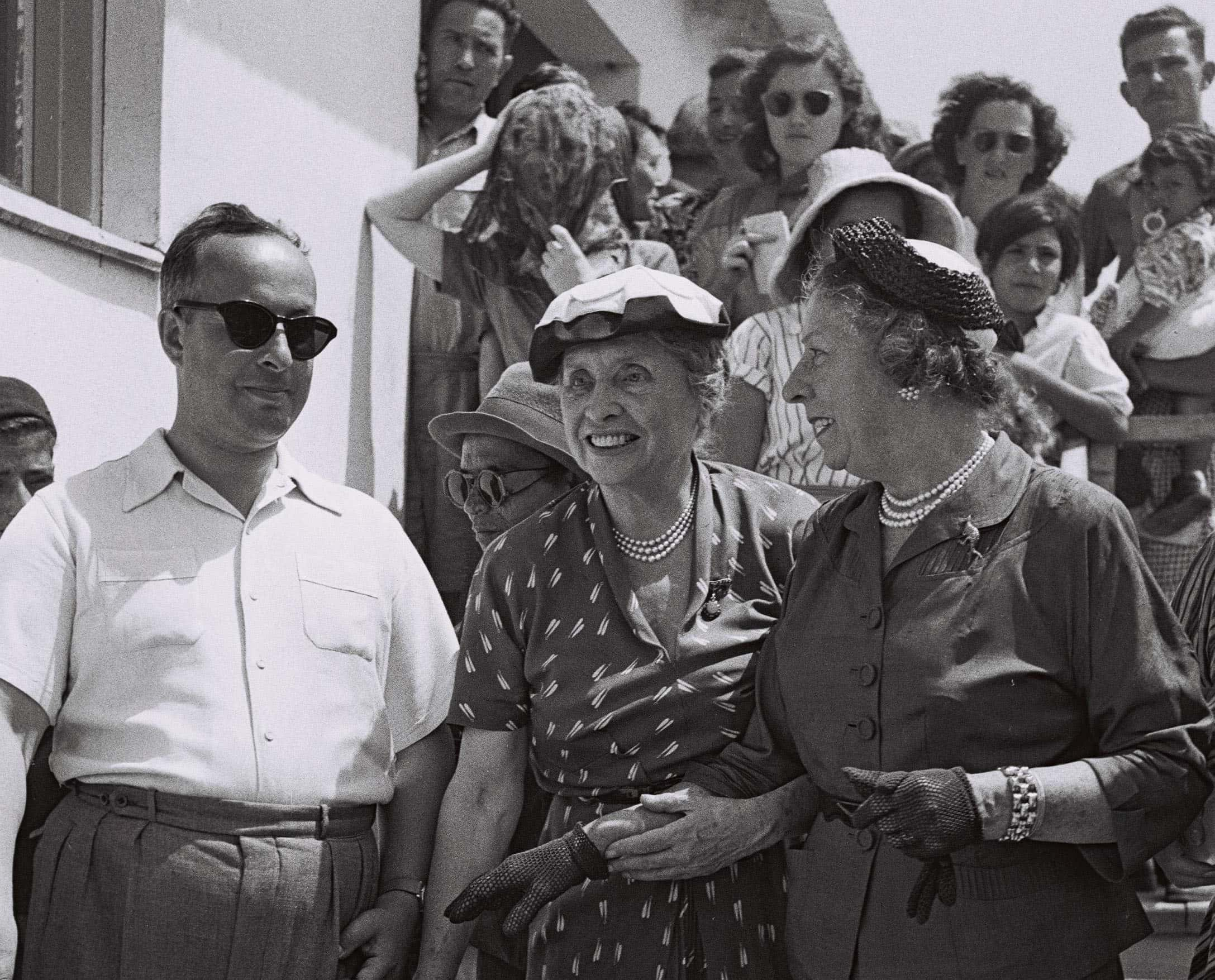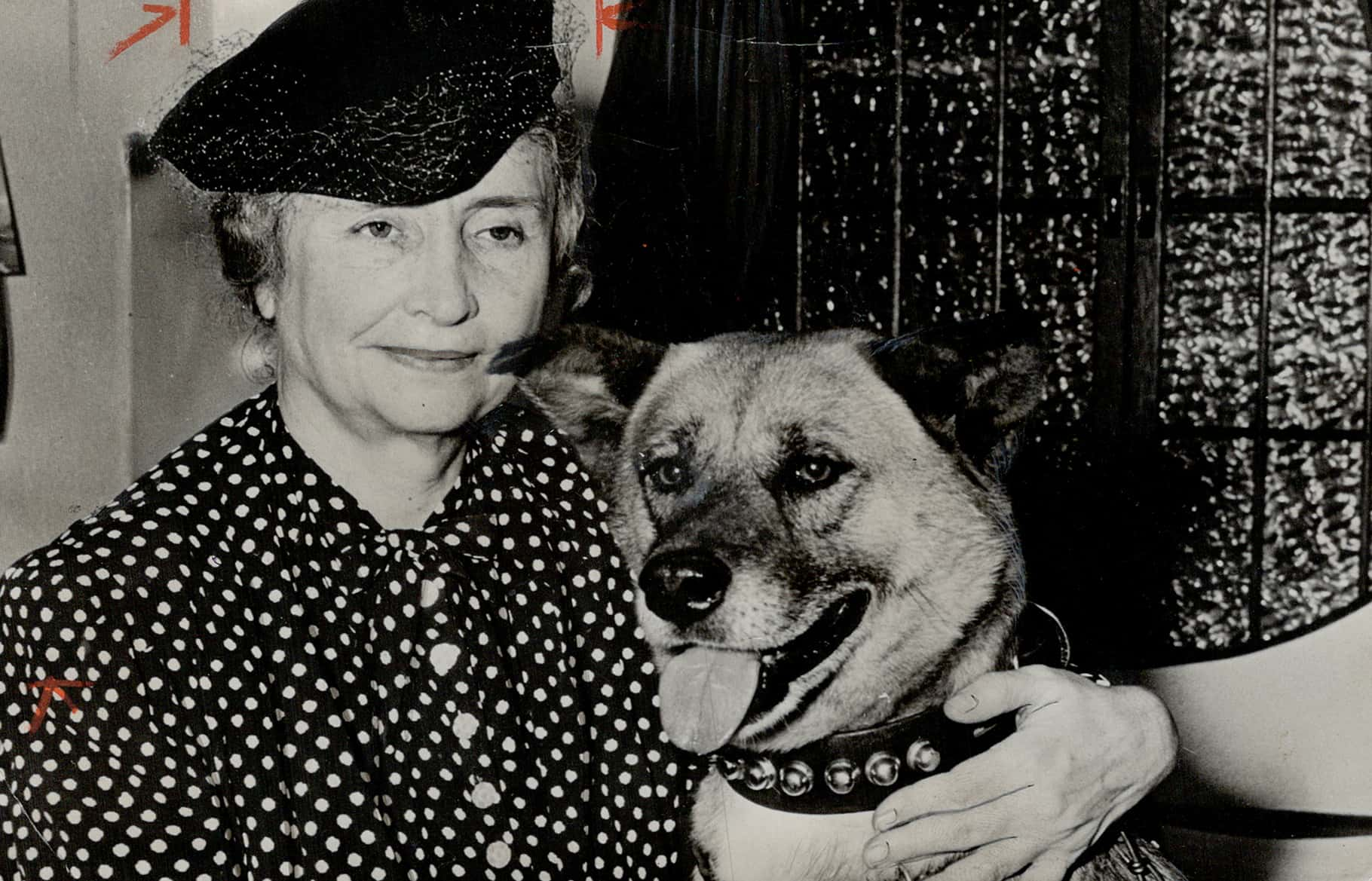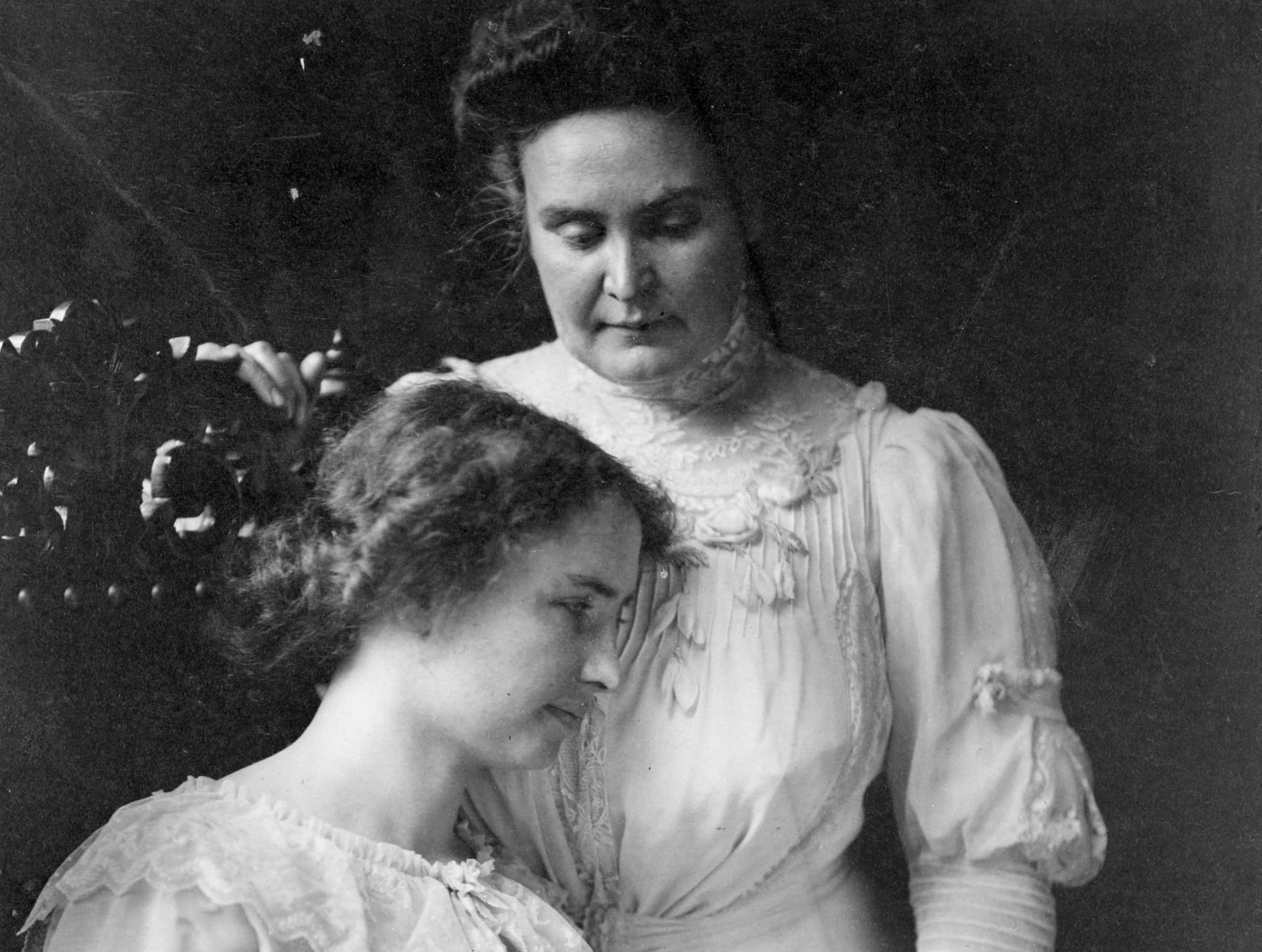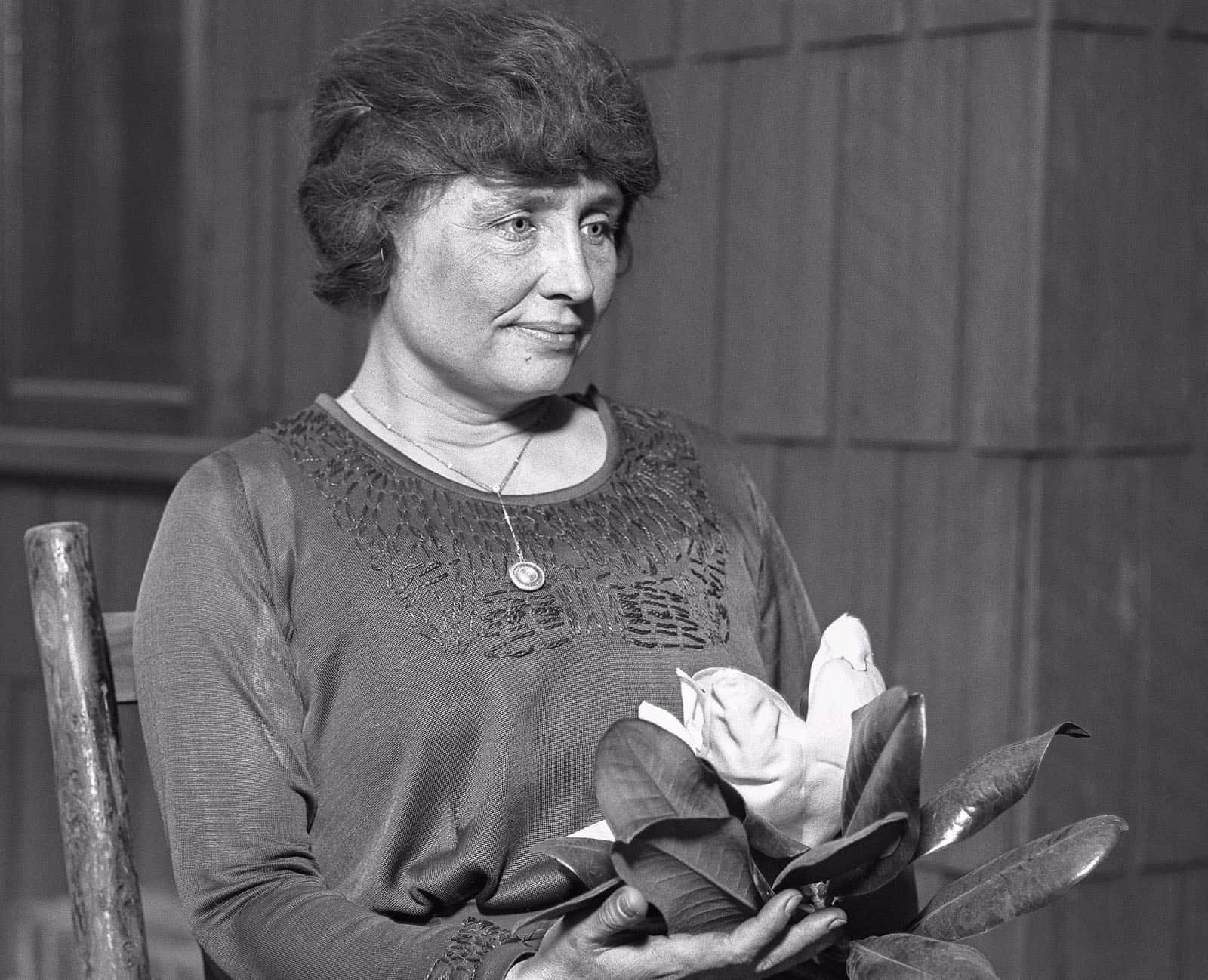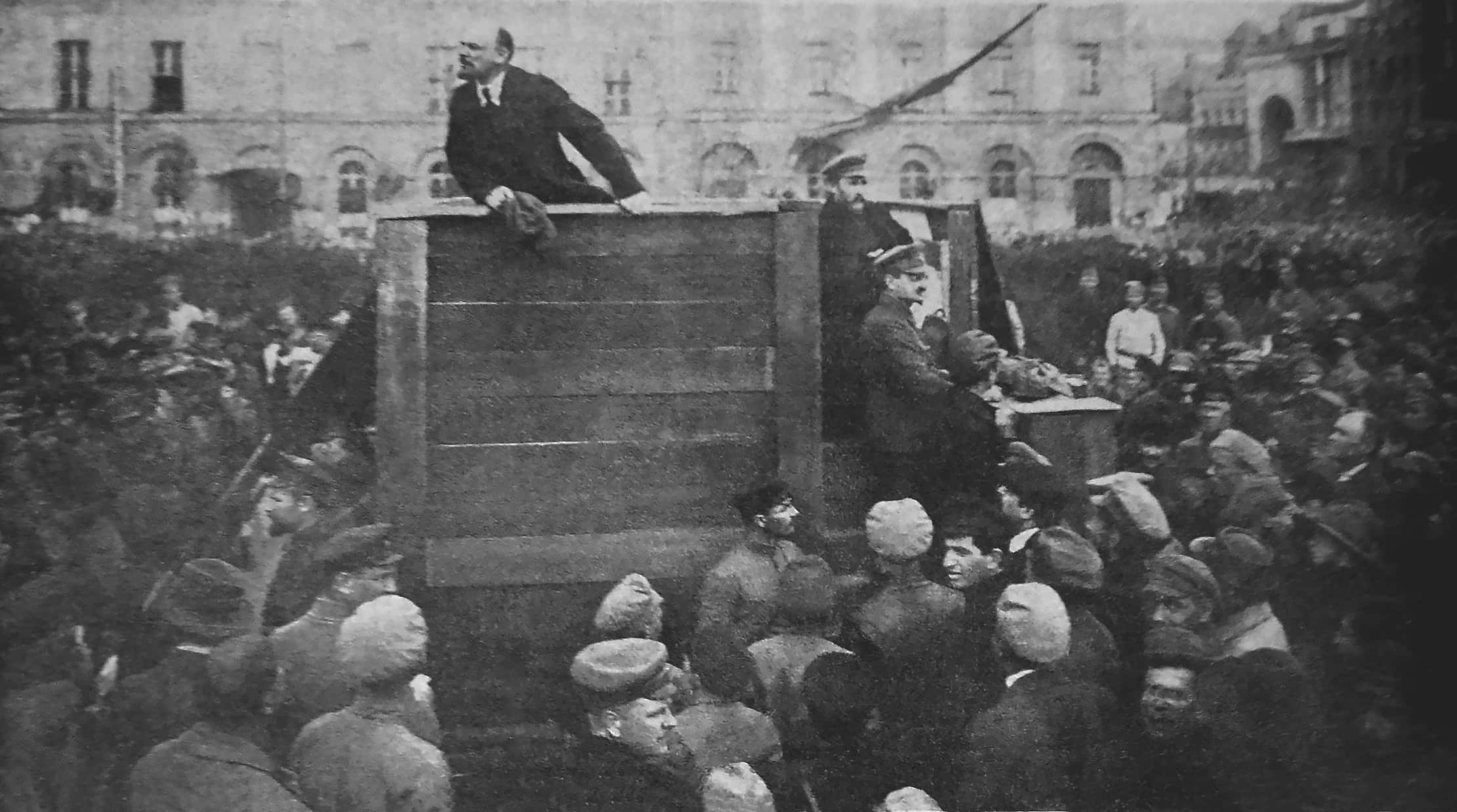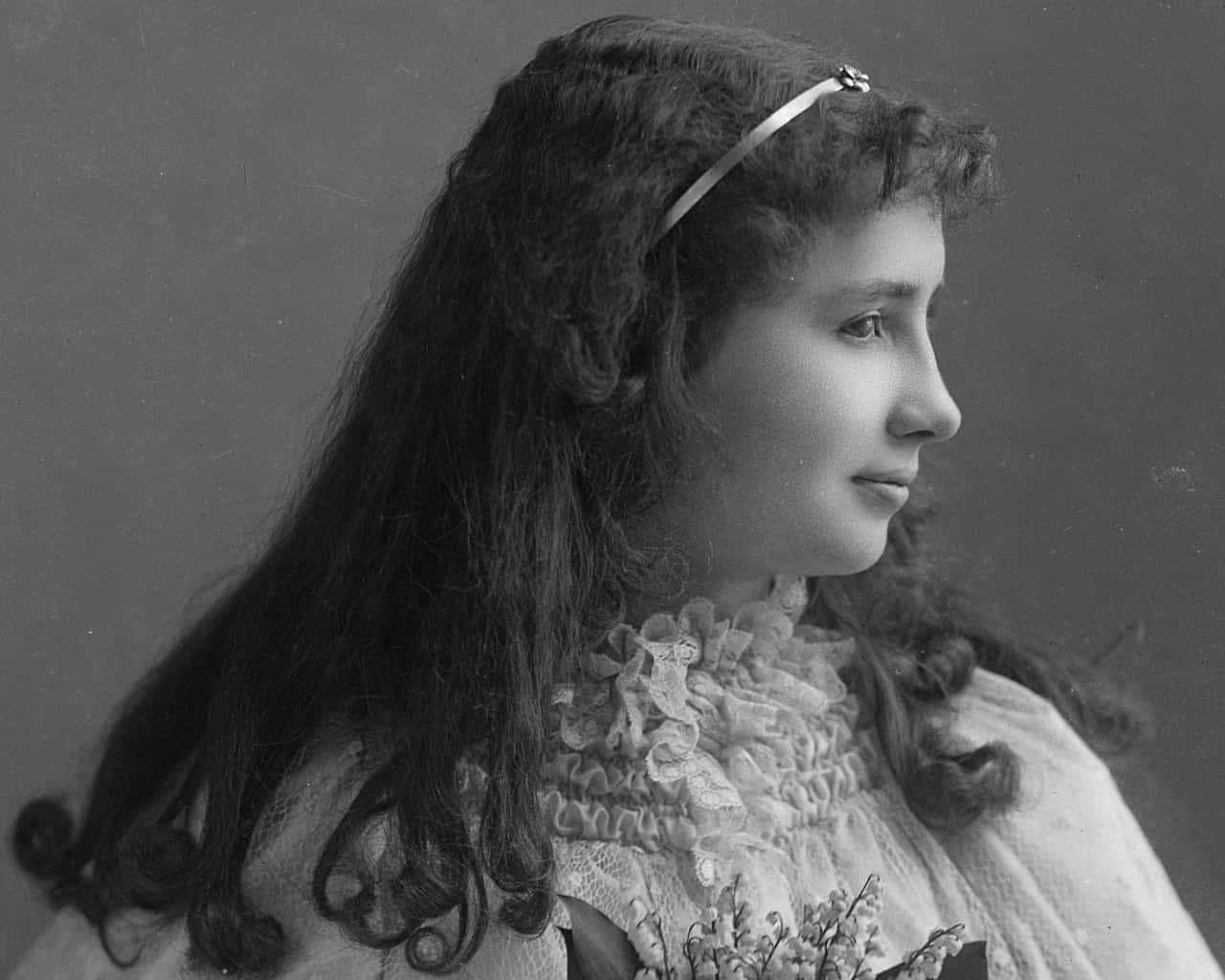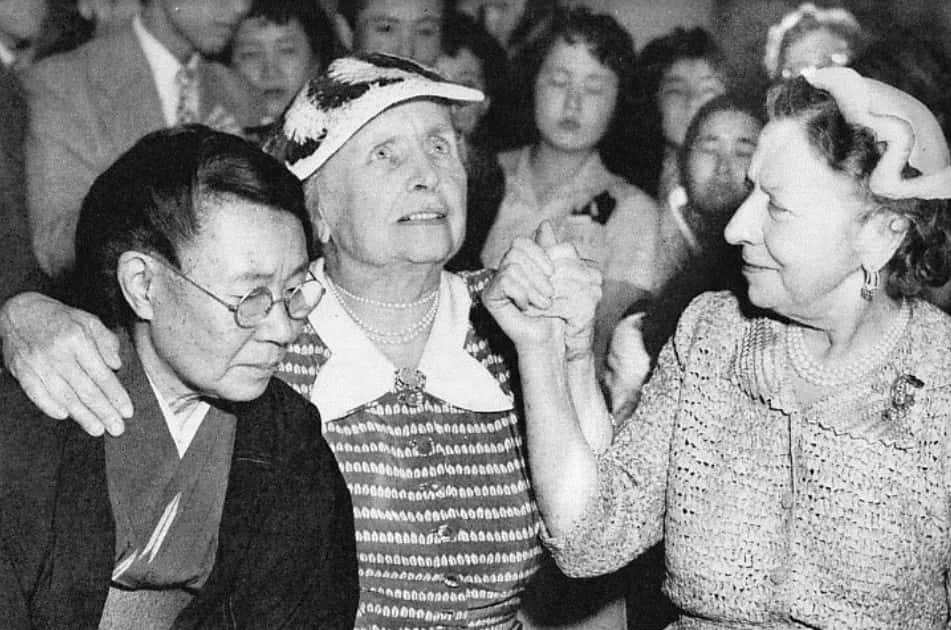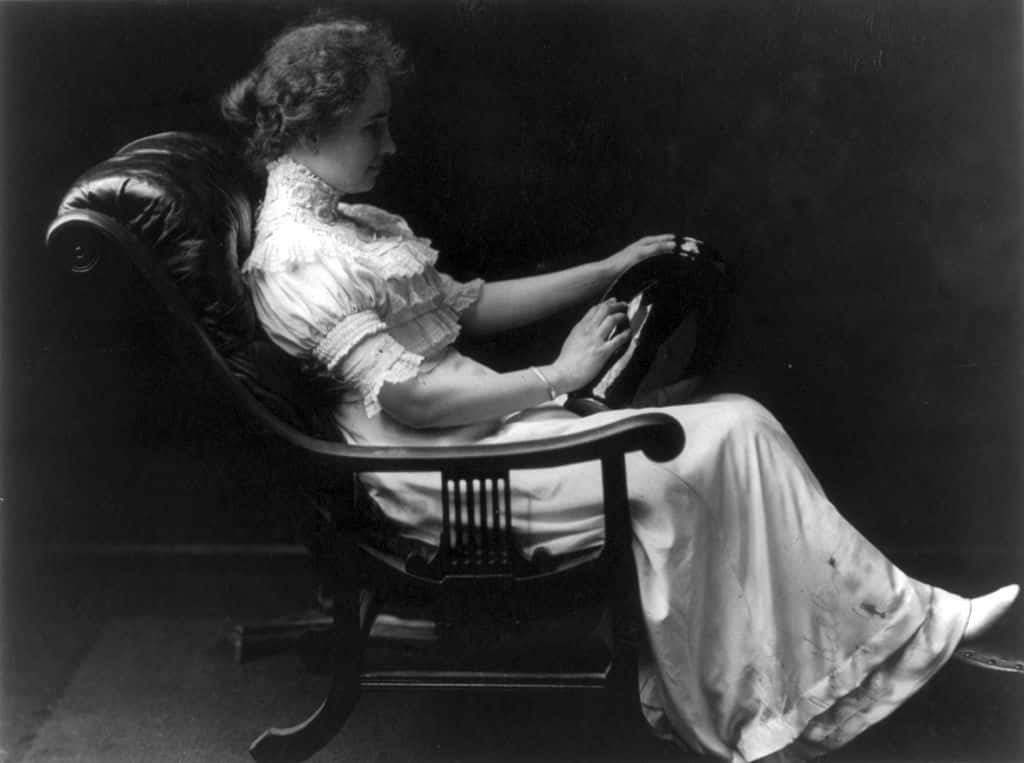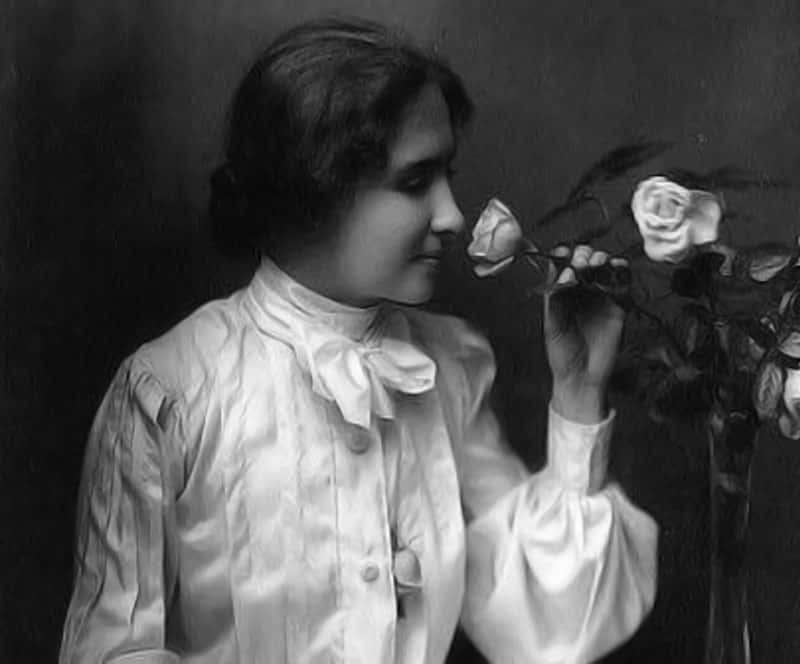"I want to say to those who are trying to learn to speak and those who are teaching them: Be of good cheer. Do not think of to-day's failures, but of the success that may come to-morrow. You have set yourselves a difficult task, but you will succeed if you persevere, and you will find a joy in overcoming obstacles—a delight in climbing rugged paths, which you would perhaps never know if you did not sometime slip backward—if the road was always smooth and pleasant. Remember, no effort that we make to attain something beautiful is ever lost. Sometime, somewhere, somehow we shall find that which we seek. We shall speak, yes, and sing, too, as God intended we should speak and sing."—Helen Keller
The life of Helen Keller must be one of the most inspirational stories in history. After surviving an early death scare as an infant that left her blind and deaf, Keller, with the help of her teacher Anne Sullivan, was able to persevere through enormous hardship and disability to become one of the most famous and influential people in the world. With a remarkable life full of achievement and tragedy, let’s take a look at some of the most interesting facts about Helen Keller.
Helen Keller Facts
29. Confederate Father
Helen Keller's father was named Arthur H. Keller. He supported his family and made his living by working as the editor for The North Alabamian, but before taking this career he served in the Confederate Army during the Civil War. In fact, Keller's paternal grandfather, Charles Adams, was second-cousin to Robert E. Lee himself.
28. Family Coincidence
The Keller family had their roots in Switzerland and, coincidentally enough, one of her ancestors was the first teacher of deaf peoples in Zurich. Helen was well aware of this happenstance, and she made sure to write about it in her first autobiography, saying: “that there is no king who has not had a slave among his ancestors, and no slave who has not had a king among his.”
27. Famous Friends
Helen Keller was quite popular through her life, and as a teenager she had the fortune of meeting Mark Twain and forging a relationship which would last a lifetime. Keller was struck by how Twain didn't treat her like a freak, but as a human being. Eventually, Keller forged a friendship with Twain’s daughter, who happened to be the same age.
26. Smokey Twain
Keller relied on her sense of smell to recognize Mark Twain. This was easier than it sounds, however, as the man carried around the stench of tobacco everywhere he went.
25. Way with Words
Mark Twain was actually the first person to use the term “Miracle Worker” in reference to Keller’s teacher, Anne Sullivan.
24. Help from Friends
Another one of Keller long-lasting relationships was with Alexander Graham Bell and his wife, who was also deaf. The couple had used their success to open different schools for the deaf, including the Perkins Institute for the Blind, which Keller would end up attending after meeting the Bell family. It was there that she would meet Anne Sullivan.
23. Long Life
Living until the age of 87, Keller died in 1968 and earned the privilege of being cremated and buried at the Washington National Cathedral in Washington DC.
22. Damage Archives
A great deal of archival footage and material of Helen Keller was stored at the World Trade Center, and was tragically lost in the events of September 11th, 2001. The offices of Helen Keller Worldwide were just a block away from the site, and were completely destroyed in the aftermath of the attacks.
21. Founding Activist
Keller was a lifelong activist who dedicated herself to creating a better world. As part of these efforts, she was one of the founders of the American Civil Liberties Union (ACLU) and the ., which she founded in 1915 with George A. Kessler.

History's most fascinating stories and darkest secrets, delivered to your inbox daily.
20. Writing Life
Helen Keller was a prolific author, publishing 12 books over the course of her life. Her first was a short story called The Frost King in 1891, when she was at just 11 years old. She then published her first autobiography at only 22.
19. Traumatizing Fiction
After releasing The Frost King, Keller and Sullivan came under fire for alleged plagiarism because it seemed to be the same story as another book, Frost Fairies, written by Margaret Canby years earlier. Keller had been read the story at a young age and it seemed that she subconsciously rewrote it as her own. Though she rejected claims that she blatantly and consciously stole the work, it was a traumatic experience for her, especially when a teacher from the Perkins Institute interrogated her for over two hours. Consequently, she would never try her hand at fiction again.
18. Unruly Behavior
Due to her disabilities, disciplining the young Keller proved difficult for her family, and she was known for throwing tantrums and getting wild by kicking, screaming, and biting.
17. “The Brightest Star of Happiness and Optimism”
When money was tight during the 1920s, Keller and Sullivan took to the road in order to make some cash. They put together a performance piece in which Keller would speak about her life and Sullivan would translate her words to the audience. At the end of their performance, the two would hold a Question and Answer period with the audience. To promote the tour, Keller was advertised as "the brightest star of happiness and optimism."
16. University Aspirations
Helen Keller made it her mission to go to college and in 1900, after much preparation, she was admitted to the prestigious Radcliffe College, which at the time functioned as the female associate college to the all-male Harvard University in Cambridge, Massachussetts. When she graduated four years later, she became the first deaf-blind person in the world to earn a bachelor’s degree.
15. Braille Currency
In honor of Helen Keller, the United States mint pressed 25 cent coins with her image on them, featuring her name written in braille, for her home state of Alabama. It is the only coin in the country to feature braille.
14. Traveling Woman
Helen Keller lived life to the fullest, and she traveled extensively. Overall, she traveled to 39 countries around the world in her life, and in these voyages she made it a point to advocate for improved educational policies for the disabled to the politicians of the world.
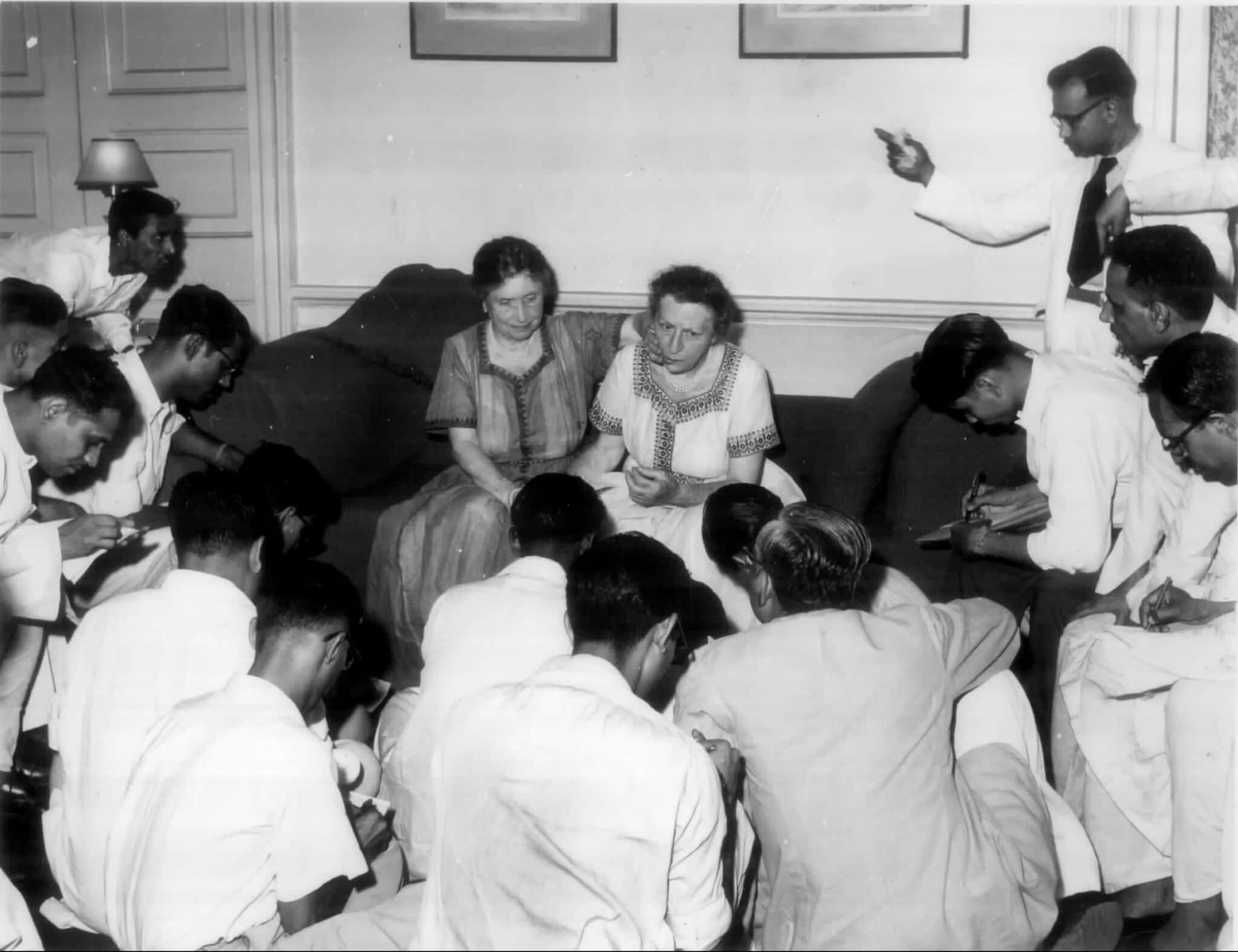 Flickr, U.S. Embassy New Delhi
Flickr, U.S. Embassy New Delhi
13. Loving All Peoples
Keller was particularly fond of the Middle East, writing: “It was more wonderful than I had dreamed for us to travel through semi-legendary lands… I could still feel something of the old picturesqueness, the poetry, the oriental atmosphere and the spirit of prophecy, and I was fascinated by the power of the Moslem religion.”
12. Puppy Love
After traveling to Japan, Keller was gifted an Akita dog named Kamikaze-Go by a local police officer. When the dog passed away soon after arriving to the US, Keller was stricken with grief and was gifted a new Akita from her first dog's same litter. Before this, the Akita was virtually unheard of in the States, and Keller is credited with introducing the now popular dog breed to the country.
11. Finding God
After being introduced to Phillips Brooks, the former Bishop of Massachusetts, by Anne Sullivan, Keller found religion through Christianity. However, just because she subscribed to the Christian faith, doesn’t mean she was against other religions: “He has provided religion of some kind everywhere, and it does not matter to what race or creed anyone belongs if he is faithful to his ideals of right living.”
10. Bollywood Story Ending
Nothing says Bollywood like Helen Keller. Well... on second thought, perhaps not, but that didn’t stop the Bollywood industry from making a film inspired by her life in 2005, entitled Black.
 Black (2005), Applause Entertainment Ltd.
Black (2005), Applause Entertainment Ltd.
9. Reaching the Highest Honor
In the United States, the Presidential Medal of Freedom is one of the two highest honors a civilian can receive and in 1964, Keller was presented with this award by President Lyndon B. Johnson.
8. Friends Forever
The friendship between Helen Keller and Anne Sullivan still lasts today, as the two women were buried side-by-side. When Sullivan died, Keller was with her, holding her teacher and longtime companion's hand til the very end. Keller felt forever grateful to Sullivan, as she felt the moment she met her teacher was when her “soul was born.”
7. Under Surveillance
Not one to shy away from expressing herself, Keller was a vocal member of the Socialist Party during the early 20th century. As a supporter of women’s suffrage, international workers rights and and overall left-leaning political activist, the FBI kept a close eye on her and investigated her activities.
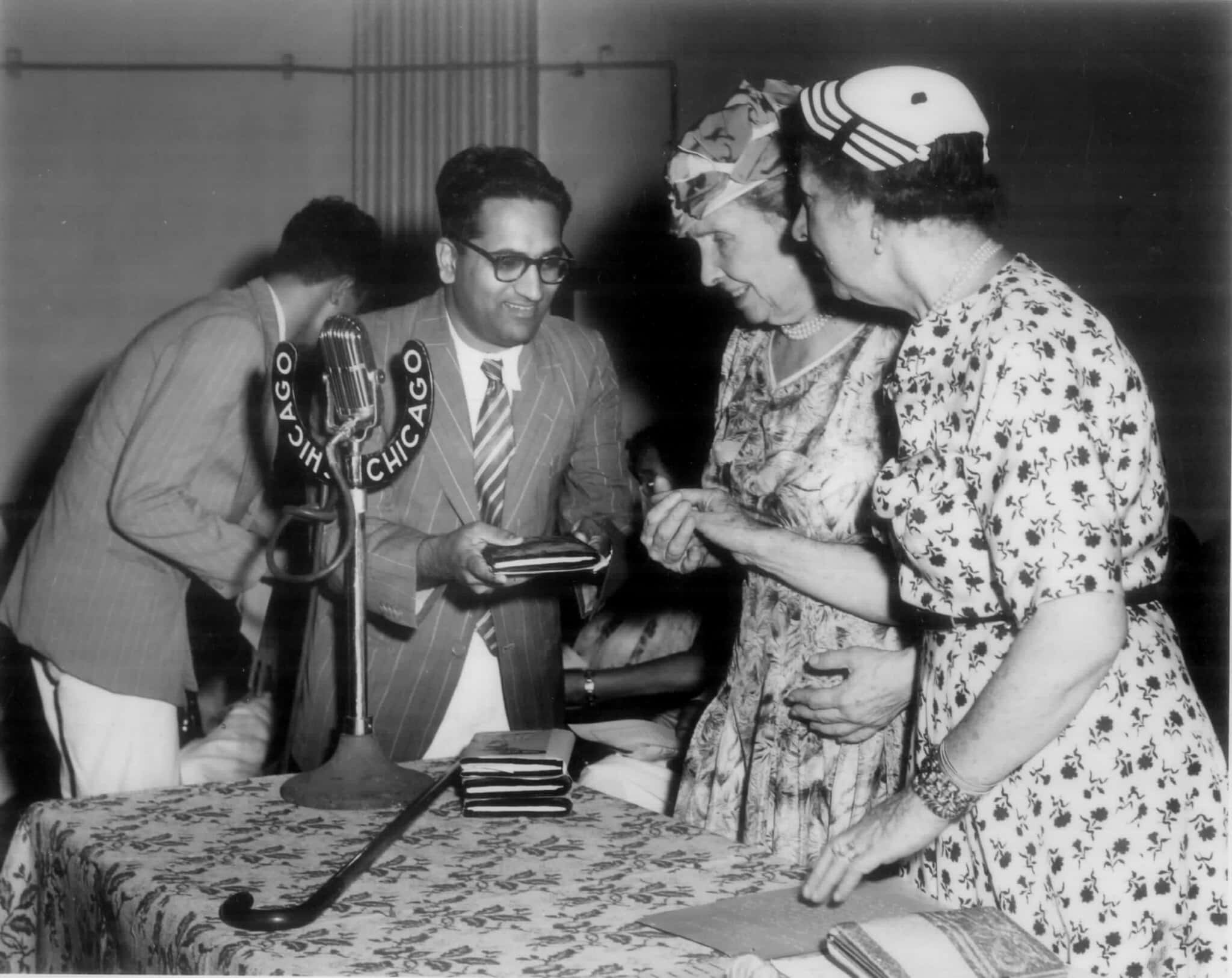 Flickr, U.S. Embassy New Delhi
Flickr, U.S. Embassy New Delhi
6. Turned on by the Media
After turning to socialism, many newspapers that previously praised her and her work refused to publish her and instead turned to mentioning her disabilities as a way to slander her intelligence.
5. Lenin Appreciation
How deep into socialism was Keller? Well, she wrote many essays through her life, including one expressing her deep admiration of Vladimir Lenin.
4. Near-Death Experience
Helen Keller was completely healthy when she was first born, but at 19 months she came down with an almost deadly sickness that is now believed to have been either scarlet fever of meningitis. After she fought through and survived, she was left without her eyesight or hearing.
3. Lingering Regrets
One of Keller’s great regrets was that she never married. But this wasn’t due to a lack of love, but rather intervention from her family, who was strict about her never entering into marriage due to her disabilities.
2. Love Affair
Keller’s great love was Peter Fagan, who filled in as a temporary secretary for her while Anne Sullivan was sick. A decade older than Fagan, Keller was in her late 30s when she fell in love with the 20-something man. The couple went as far as getting engaged (secretly) and taking out a marriage license. Unfortunately, that's when the family found out and put a halt to the whole affair.
1. Population Control
Believe it or not, Helen Keller actually supported eugenics. Concerned with overpopulation on the Earth, Keller was in favor of refusing live saving treatments for infants born with severe mental and physical handicaps because she felt their lives would not be worth living and they were likely become criminals if they grew up. Sadly, Keller is yet further proof that just about every inspiring story is more complicated and troubling than we would like to believe.

